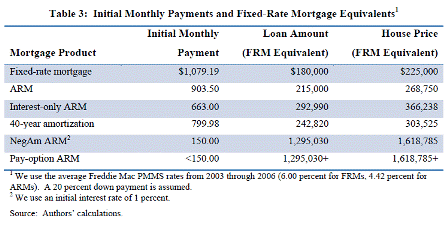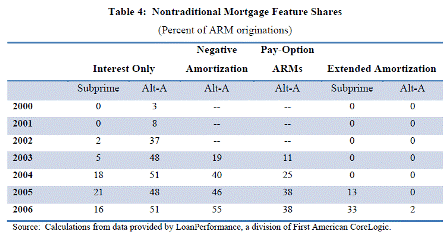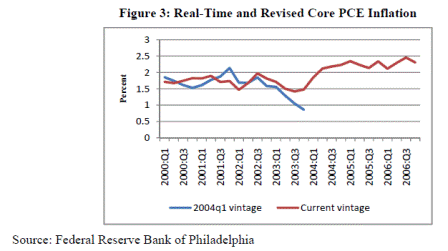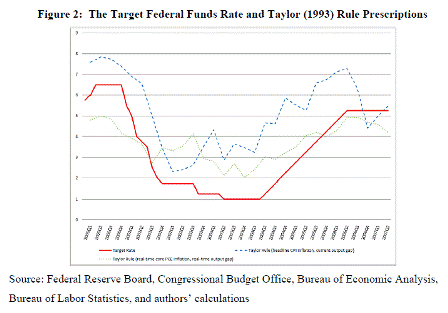>
> (email exchange)
>
> On Tue, Dec 29, 2009 at 8:55 AM, wrote:
>
> Do you agree with their conclusion that monetary policy (low rates) didn’t affect housing
> prices?
Yes, seems that way to me, too.
>
> I guess they did raise rates from 2003-06.
>
> Seems the very low short rates DID contribute to the ability to buy “more house” or qualify for
> any house.
>
Maybe some.
>
> For me it was the bush 2003 fiscal adjustment- spending increases, retro tax cuts, etc. that got
> the deficit up to 200 billion by q303 which was about 8% of gdp annual. Then after a few years
> the sub prime housing fraud started with loan officers on commission pushing fraudulent
> appraisals and fraudulent income statements that turned the recovery into a mini boom that
> actually didn’t get all that large before it crashed when the $trillion fraud was discovered.
>
Fed: “Monetary Policy and the Housing Bubble”
Excerpt:
“Lessons
Our findings are both clear and limited in scope.
We find little evidence that the setting of U.S. monetary policy could have directly accounted for a substantial share of the strength in U.S. housing markets between 2003 and 2006. In particular, the rise in house prices or housing activity during this period was much faster than the pace consistent with the overall macroeconomic environment at that time.
But we also find that housing-specific developments were unusual in this period—and not only with respect to prices and activity. The form of mortgage finance—the prevalence and nature of mortgages with adjustable rates versus fixed rates, the role of other “new” or exotic mortgage features, and the role of different types of lenders and securitization paths—all shifted during this period. These shifts undoubtedly fed on each other, with strong demand for housing and rising house prices spurring unsustainable evolution in the nature and perceived risks associated with mortgage innovations and vice versa. This finding is quite limited in that it describes developments but does not explain why such developments occurred.
Nonetheless, our clear finding that traditional channels of monetary policy accounted for little of the rise in housing markets and that housing-specific factors involved the interaction of shifts in demand and mortgage finance suggest two important lessons for policy and certainly for subsequent research. In particular, our discussion connects to the questions of whether monetary policy should “lean against the wind” in the face of asset price bubbles and of how complimentary financial policies (for example, macroprudential regulation) may interact with monetary policy.”
[top]








